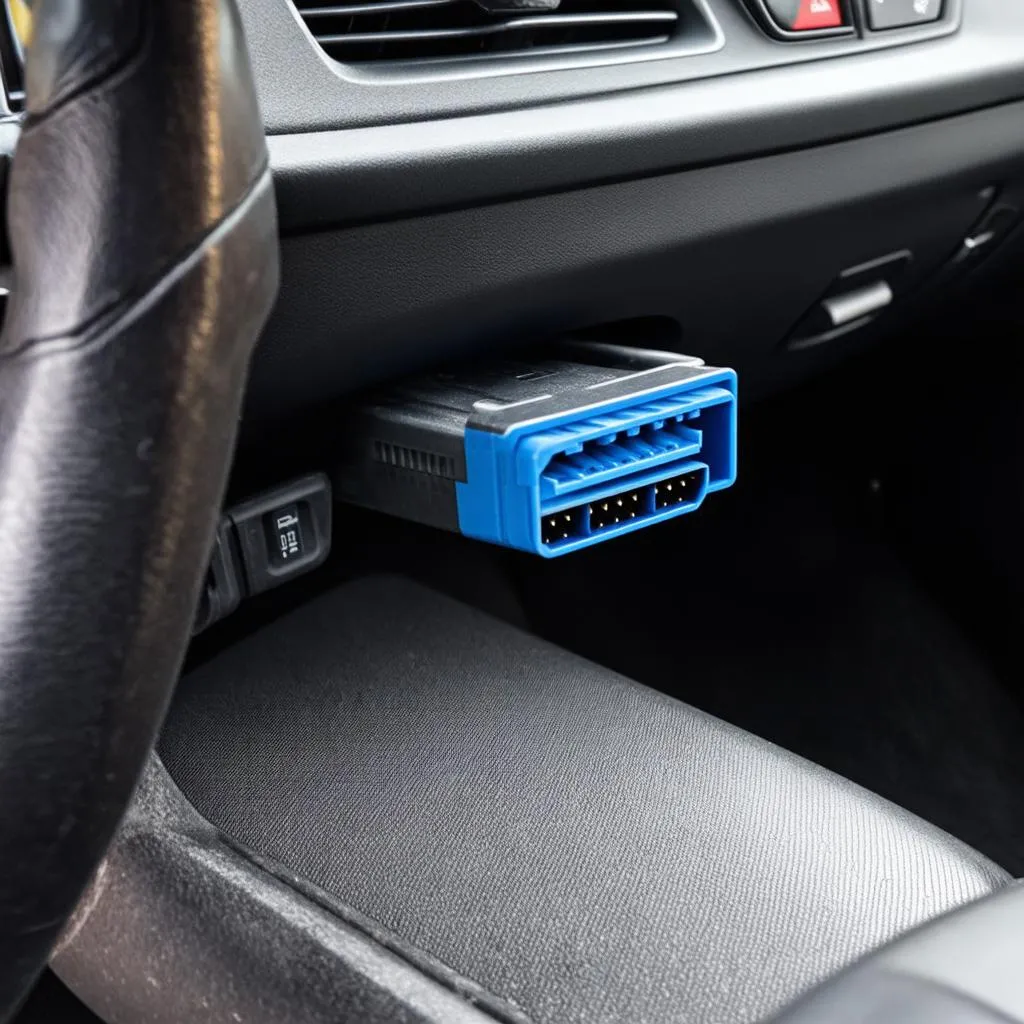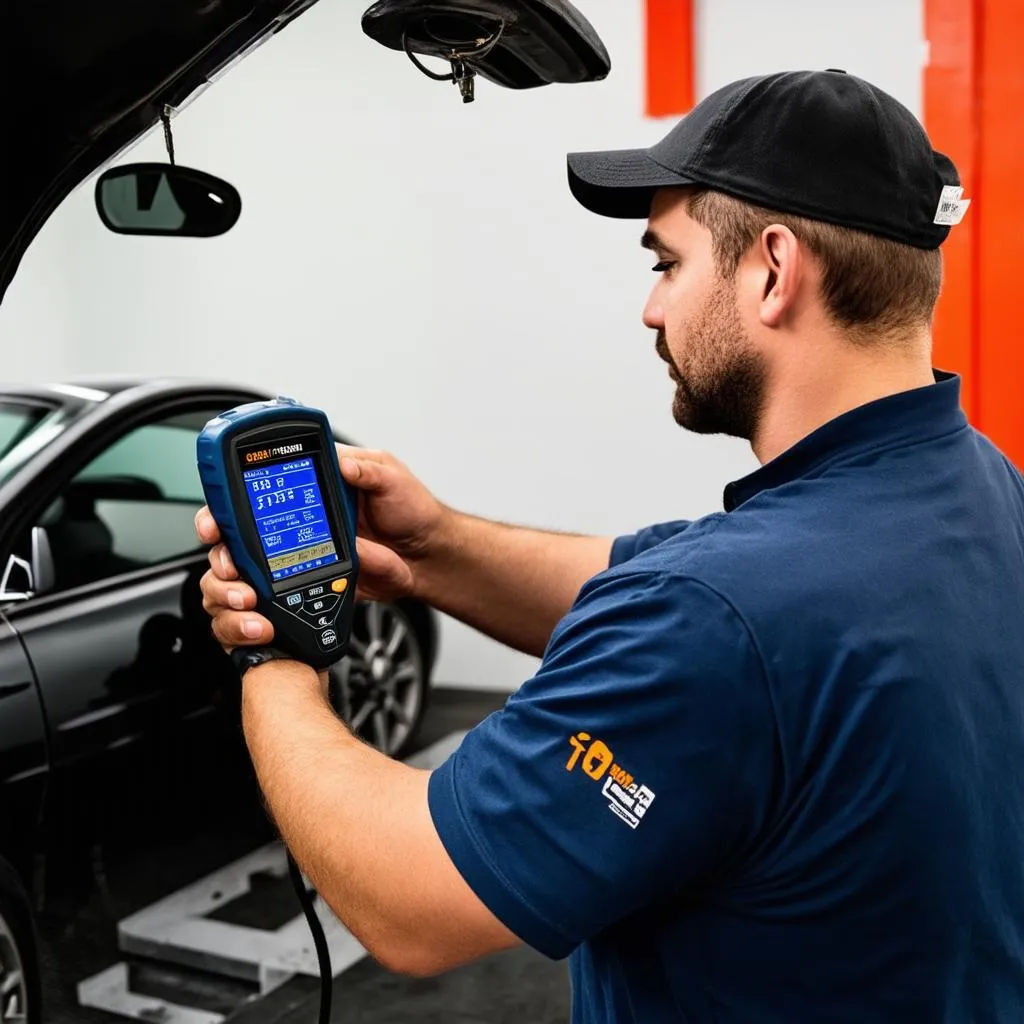Have you ever been driving and suddenly a light on your dashboard turns on? You know, that little orange glow that instantly makes your heart skip a beat. Well, that’s your car trying to tell you something’s up, and understanding what “OBD” stands for can help you decipher its message.
Imagine this: Your car is like a bustling city, and the various systems are its intricate network of roads and buildings. The OBD system is like the city’s central communication hub, constantly monitoring the flow and flagging any potential issues.
Decoding OBD: Meaning and Importance
OBD stands for On-Board Diagnostics. In essence, it’s your car’s built-in self-diagnosis system. It uses a standardized digital language to communicate with a special device, often called an OBD scanner or code reader.
Now, you might be wondering, why is this important? Well, just like a doctor uses various tools to diagnose a patient, mechanics rely on OBD scanners to understand what’s ailing your car.
Here’s how it works:
-
The Check Engine Light Illuminates: When your car’s computer detects a problem within the engine, emissions, or other critical systems, it logs a trouble code. This triggers the check engine light to illuminate on your dashboard, acting like a beacon signaling for attention.
-
Connecting the OBD Scanner: A mechanic (or even you, with a personal OBD scanner!) connects the scanner to your car’s OBD-II port, usually located under the steering wheel.
-
Reading the Codes: The scanner retrieves the stored trouble codes, which are essentially alphanumeric codes that correspond to specific issues. For instance, a “P0420” code might indicate a problem with the catalytic converter system.
-
Diagnosis and Repair: The mechanic, armed with the code and their expertise, can then pinpoint the root cause of the problem and recommend the necessary repairs.
 OBD Scanner Port
OBD Scanner Port
The Power of OBD: More Than Just Engine Codes
OBD technology has advanced significantly over the years. While it was initially focused on engine performance and emissions, today’s OBD-II systems offer a comprehensive view of your car’s health.
Here are some additional areas where OBD comes into play:
- Emissions Monitoring: OBD plays a crucial role in ensuring your car meets environmental regulations by constantly monitoring the emissions system.
- Transmission Performance: It can detect issues with your car’s transmission, such as slipping gears or solenoid problems.
- Airbag Systems: OBD can help diagnose problems with your airbags, ensuring this critical safety feature functions correctly.
- Anti-lock Braking System (ABS): It can identify issues with your ABS, helping to maintain optimal braking performance.
OBD and Feng Shui: Finding Harmony in Technology
Interestingly, the concept of OBD resonates with the ancient Chinese philosophy of Feng Shui. Just as Feng Shui emphasizes balance and harmony in our living spaces, OBD strives to maintain equilibrium within the intricate systems of your vehicle. A well-maintained car, free from error codes, can be seen as a reflection of balance and order, promoting a sense of peace and control on the road.
FAQs: Common Questions about OBD
What does Obd Stand For, and what does it do?
OBD stands for On-Board Diagnostics. It’s a system built into your car that monitors and diagnoses issues in your engine, emissions, and other critical systems.
Where is the OBD port located in my car?
The OBD-II port is typically located under the dashboard on the driver’s side, often beneath the steering wheel.
Can I use any OBD scanner on my car?
While most OBD-II scanners work on a wide range of cars, it’s essential to choose a scanner compatible with your car’s make, model, and year.
What is the difference between OBD and OBD-II?
OBD-II is the second generation of On-Board Diagnostics and is the standard for vehicles manufactured after 1996 in the United States. OBD-II offers more comprehensive diagnostics and standardized codes compared to its predecessor.
Explore More about Your Car’s Health
Interested in learning more about OBD, diagnostic trouble codes, or other car maintenance tips? Check out these related articles on techcarusa.com:
 Mechanic using OBD Scanner
Mechanic using OBD Scanner
Need Help with Your Car’s Diagnostics?
We understand that car trouble can be stressful. If you’re facing any issues with your vehicle’s diagnostics or need assistance with OBD-related repairs, our team of expert mechanics is here to help. Contact us on Whatsapp at +84767531508 for 24/7 support.
Embrace the Power of OBD
By understanding what OBD stands for and how it works, you can take a proactive approach to car maintenance. Remember, just like a stitch in time saves nine, addressing those pesky OBD codes early on can save you from costly repairs and keep your car running smoothly for miles to come.